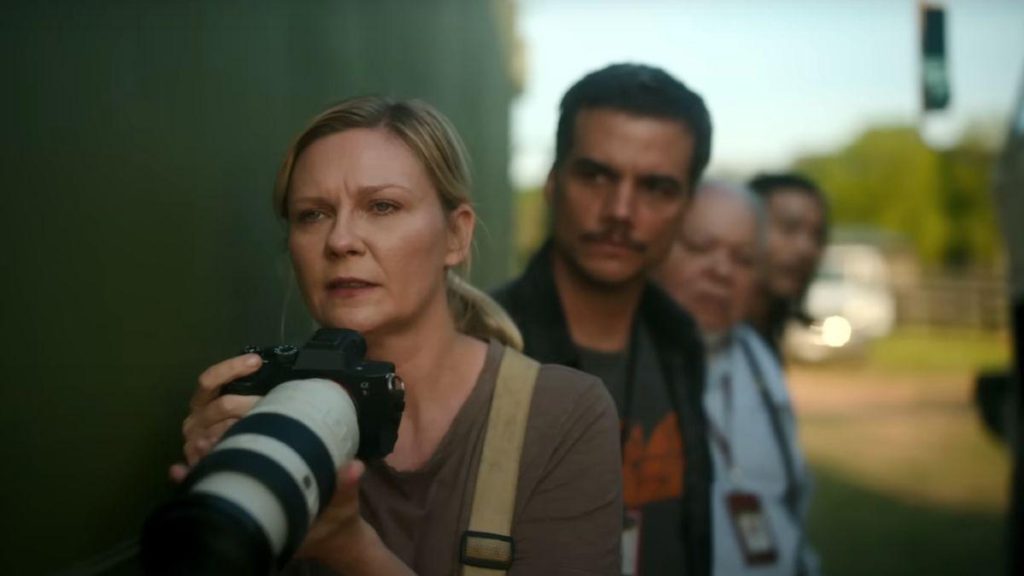In Alex Garland’s new film Civil War, the audience is taken on a journey through a familiar yet foreign America where the country is torn apart by war. Set in the near future, the film follows a group of journalists as they navigate the dangerous landscape of a nation on the brink of collapse. Through their eyes, we witness the atrocities and breakdown of society brought on by the civil war.
The film smartly avoids delving into the specific politics of the day, choosing instead to focus on the universal themes of war and its impact on society. While familiar locations such as Charlottesville and Washington D.C. are mentioned, the film never mentions political parties or ideologies. Instead, it presents a bleak and unsettling portrait of a country on the verge of destruction.
As the journalists travel through the war-torn country, they encounter scenes of chaos and violence that are reminiscent of past civil wars in countries like Rwanda and the Balkans. From heavily armed individuals at gas stations to snipers engaged in shoot-outs, the reporters witness the collapse of civilization firsthand. The film highlights the arbitrary nature of war, with no clear sides or reasons behind the conflict.
The role of journalists in covering war is a central theme of the film. The characters grapple with the moral dilemmas of documenting atrocities while remaining neutral observers. As the journalists become more embroiled in the conflict, their ideals and values are tested, leading to moments of self-reflection and moral ambiguity.
The film ends on a haunting note, with a black and white photograph fading in from white, symbolizing the potential for tragedy and destruction in a nation torn apart by war. The audience is left pondering the implications of the film’s message and questioning how such a scenario could be prevented in the real world. Civil War serves as a stark reminder of the horrors of war and the fragility of society, urging viewers to consider the consequences of political division and unrest.













